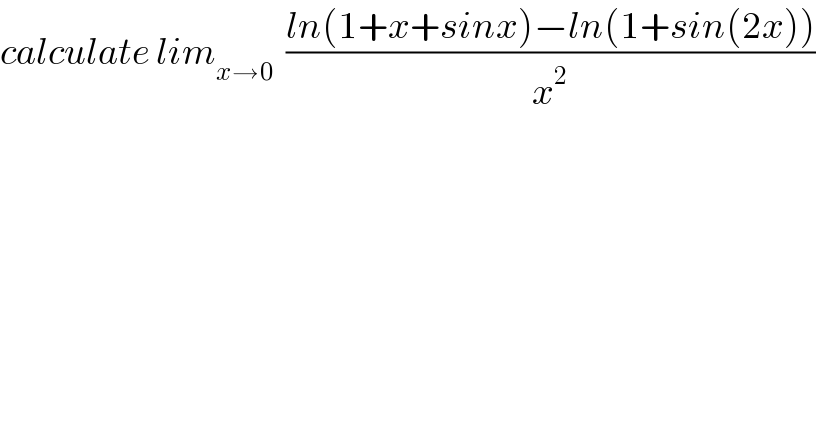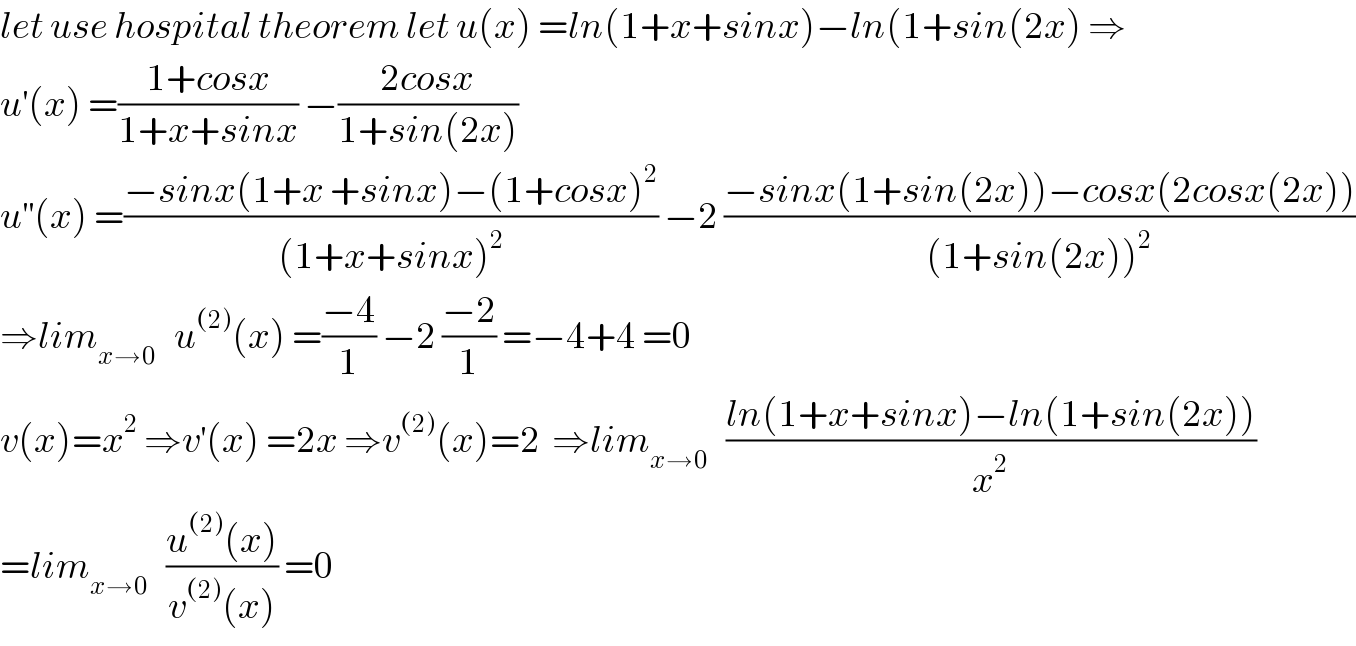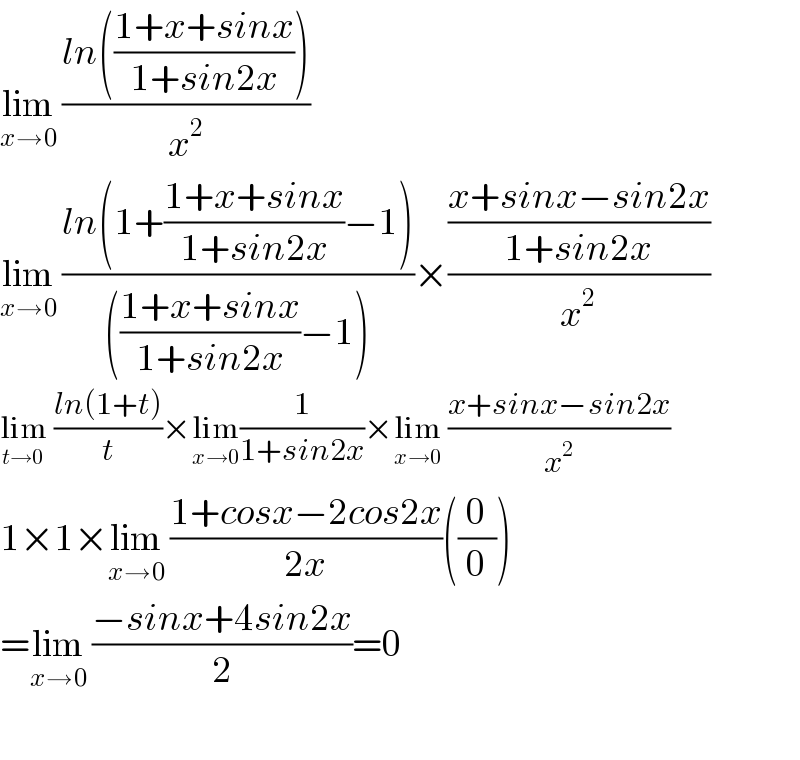
Question and Answers Forum
Question Number 62200 by maxmathsup by imad last updated on 17/Jun/19

Commented by maxmathsup by imad last updated on 18/Jun/19

Answered by tanmay last updated on 17/Jun/19

| ||
Question and Answers Forum | ||
Question Number 62200 by maxmathsup by imad last updated on 17/Jun/19 | ||
 | ||
Commented by maxmathsup by imad last updated on 18/Jun/19 | ||
 | ||
Answered by tanmay last updated on 17/Jun/19 | ||
 | ||
| ||